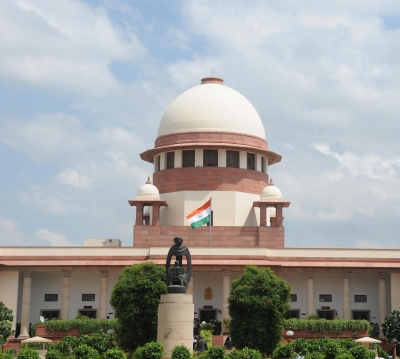New Delhi, Feb 17 : The Supreme Court on Thursday set aside the Punjab and Haryana High Court order, which stayed the Haryana law providing 75 per cent reservation in industries to youngsters with domicile of the state.
A bench headed by Justice L.Nageswara Rao set aside the high court order, and ordered no coercive steps should be taken, and the high court should decide the matter expeditiously and not later than the period of four weeks.”High Court order is set aside as the court has not given sufficient reason.”, said the bench.
Pointing at the one-line order of the high court, the top court said: “All statues can be done in one-line order?”
It was submitted before the bench that the high court was prima facie satisfied that the legislation was unconstitutional.Solicitor General Tushar Mehta, appearing for the Haryana government, contended that the high court merely gave 90 second hearing in the matter, which was against the principles of natural justice.”In the meanwhile, the Haryana government should not take coercive steps against employers”, said the bench.
Senior advocate Dushyant Dave, representing a petitioner on caveat, submitted that there are over 49,000 companies registered in Haryana.He added that there is no reservation in the private sector and it can only be done by Parliament.”There is no empirical study, no data to give reservation”, said Dave.
Senior advocate Shyam Divan, representing Manesar Industrial Welfare Association, urged the top court not to vacate the stay granted by the high court on the law.
In a special leave petition, the Haryana government contended that the interim order was passed in the teeth of law laid down by the top court in Bhavesh D.Parish vs Union of India (2000), and also in violation of the principles of natural justice.”It is submitted that the hearing granted by the High Court was mere empty formality, whereby, the High Court with a predetermined conclusion opened the hearing by saying that the Act is liable to be stayed and thereafter did not afford any opportunity to the law officer appearing on behalf of the state of Haryana,” said the plea.It further added, “Violation of principles of natural justice is manifest from the fact the entire hearing in the matter concluded within one minute”.ss/dpb
In an application for a special leave that was filed, the Haryana government claimed that the interim decision was made in the face of the law enacted by the highest court in Bhavesh D.Parish vs Union of India (2000) and in the violation of the fundamentals of natural justice.”It is argued that the hearing conducted by the High Court was mere empty formality.The High Court with a predetermined conclusion began the hearing by stating that the Act could be stayed , and then did not give any chance to the law enforcement officer who appeared for the benefit of the Haryana state.of Haryana,” said the argument.The plea further states “Violation of principles of natural justice is evident from fact that the all hearing in the case ended within the time of one minute”.







